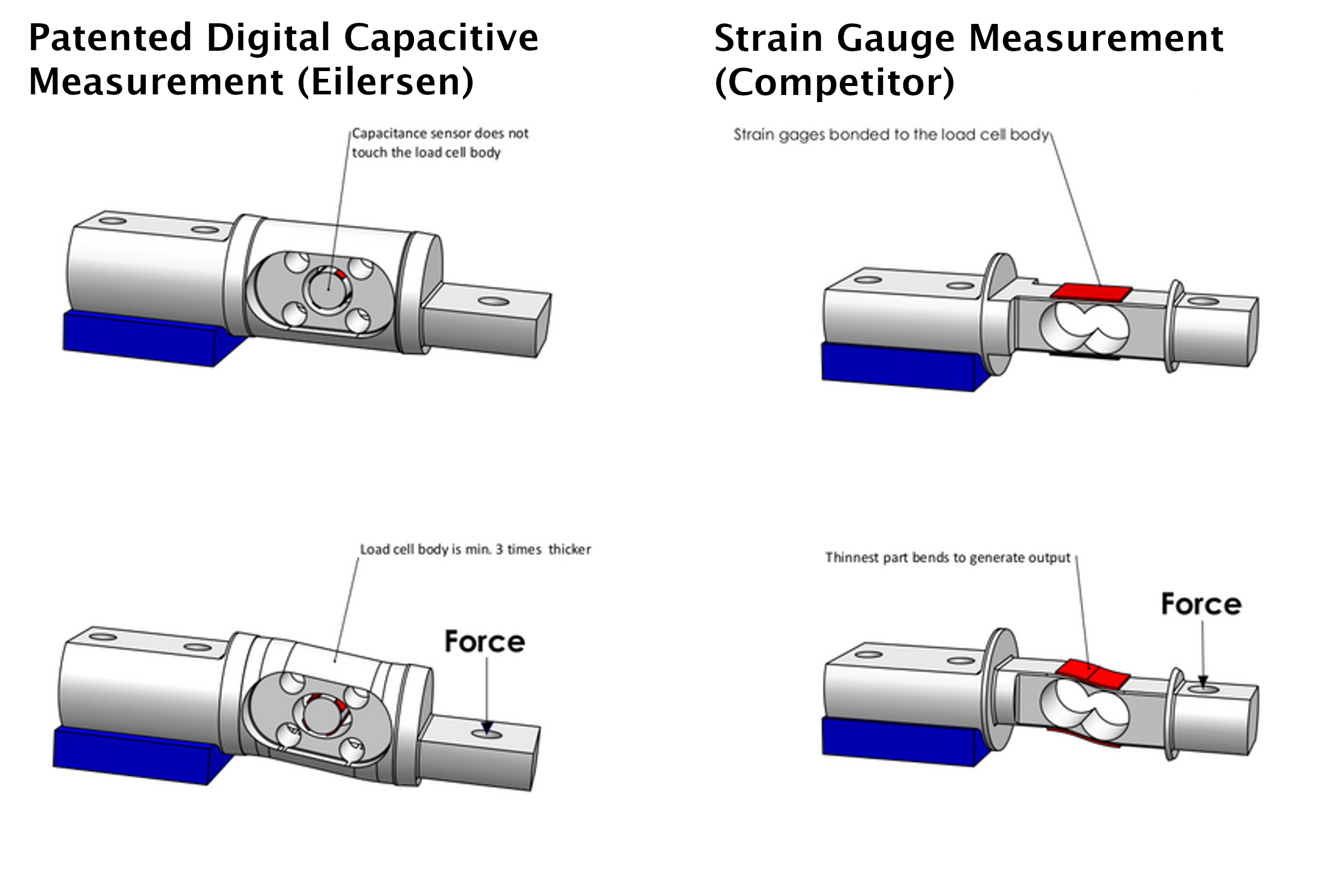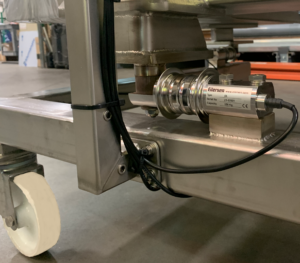Strain Gauge load-cell weighing systems can be notoriously unreliable in mobile applications where they are subject to extraneous forces that affect accuracy and performance. During movement, it is common for a mobile tank, cart, or other piece of equipment to impart acceleration forces, shock forces, or side-loading forces to the load cells. The issue is further exacerbated if the tank is full of product, or if the tank is required to negotiate thresholds on the floor or accidentally impacts an immobile object like a wall or door stop. Because the strain-gauge sensor is bonded directly to the load cell body, these forces are transmitted directly to the sensor, and can cause the weighing system to lose calibration or become irreparably damaged. In comparison, the capacitance sensor on digital capacitive load cells do not touch the load-cell body.

Many strain gauge load cell manufacturers attempt to protect their load cell sensors from these forces by adding a “mounting kit”. These kits typically involve a top and bottom plate that are mechanically connected either via guide bolts, stay-rods, or turnbuckles and are intended to isolate the cell itself from the extraneous force. These mounting kits can be cumbersome, difficult to adjust, hard to clean, and can bind during movement thus rendering the load cell unreliable/inoperable.
 Eilersen load cells with digital capacitive technology solve this problem without the need for protective mounting kits. Because the Eilersen capacitive sensor does not physically contact the load cell body, any extraneous force is not transmitted to the sensor. Provided that the forces do not exceed the elastic limit of the stainless-steel load cell body, the system maintains its accuracy and reliability.
Eilersen load cells with digital capacitive technology solve this problem without the need for protective mounting kits. Because the Eilersen capacitive sensor does not physically contact the load cell body, any extraneous force is not transmitted to the sensor. Provided that the forces do not exceed the elastic limit of the stainless-steel load cell body, the system maintains its accuracy and reliability.
- Reliable and robust weighing even in the most demanding mobile applications.
- Machine builders, system fabricators, and other OEM’s can ship systems with load cells installed with no protection or lockout requirements or added cost of site setup.
- System owners minimize downtime or process deviations.
- Calibration frequency can be reduced
- Total Cost of Ownership (TCO) is reduced over the lifecycle of the system
- Mobile equipment can often be specified where fixed equipment was once required
In need of technical support with load cells? The team at Acuity can help design a tailored (mobile or fixed) weighing system with a keen focus on your needs for quality, safety, regulatory compliance, and performance, . We love to answer technical questions and design new weighing systems – Contact us today.


Leave a Reply
You must be logged in to post a comment.